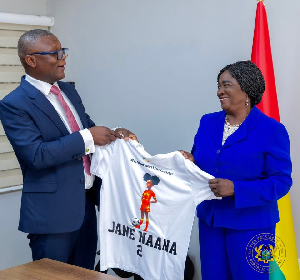Senior Lecturer at the Department of Statistics and Actuarial Science at the University of Ghana, Dr. Louis Asiedu has raised concerns over the kind of sampling used in the recent Centre for Democratic Development (CDD-Ghana)’s pre-election survey.
The methodology of the report noted, “Every adult citizen had an equal chance of being selected for the 2020 pre-election survey. A nationally representative sample of 2,400 adult citizens were randomly selected."
"The sample is distributed across regions and urban-rural areas in proportion to their share in the national adult population”.
However, Dr. Louis speaking on the sampling in an interview with Samuel Eshun on e.TV Ghana’s Fact Sheet show noted that the sample for the survey was not enough as the findings were descriptive.
According to him, the CDD had to back their sampling with “empirical statistical test” which could have brought much believability to the findings.
“My concern was the kind of sampling used. It should have been backed with empirical statistical tests. The findings were too authoritative and if it has no empirical statistical test then it becomes problematic”.
He further suggested, “If you want to do a descriptive survey, pick more than 10% of your target population but you pick less than 0.03% without empirical statistical test only to make a certain conclusion that Ghanaians think party A is doing better than party B and that is problematic”.
Some notable findings from the CDD’s survey were that Ghanaians had confidence in the Electoral Commission, and the ruling New Patriotic Party (NPP) enjoys public confidence in the fulfilment of campaign promises than the opposition National Democratic Congress (NDC).
General News of Wednesday, 11 November 2020
Source: happyghana.com
Statistician challenges CDD’s pre-election report
Entertainment












